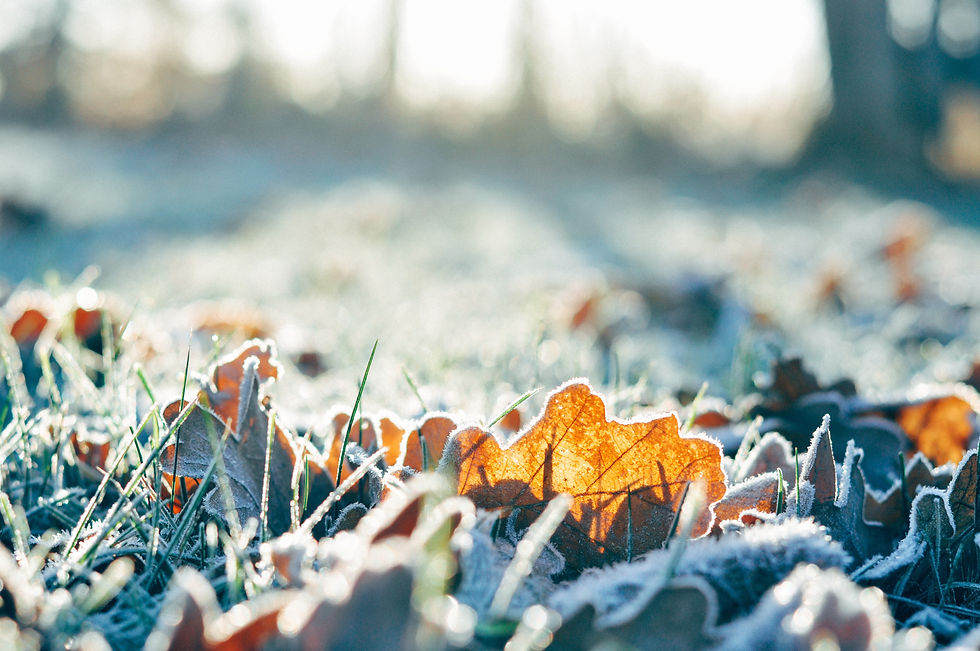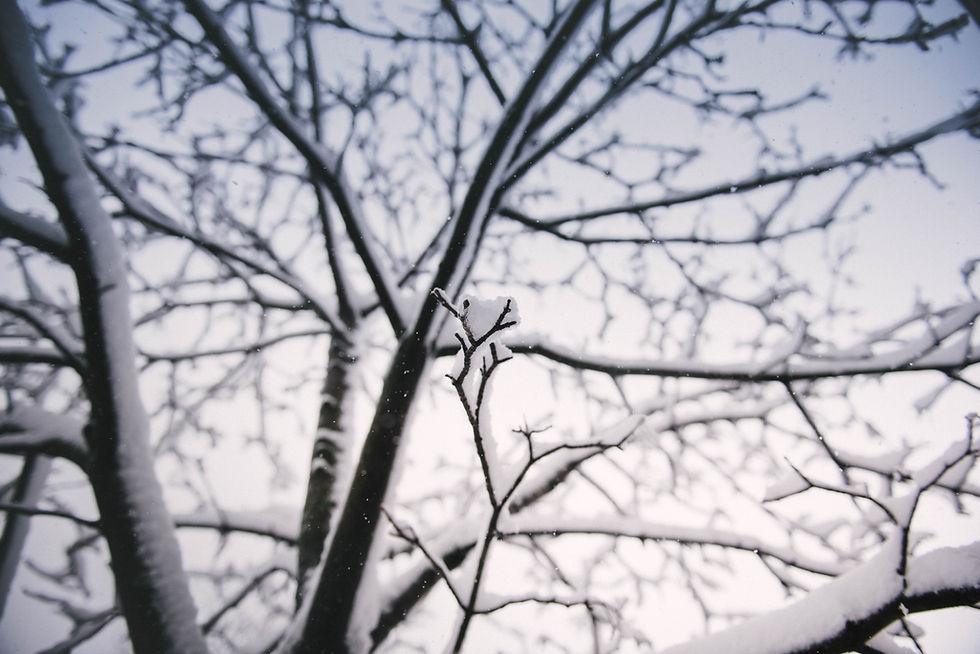How Winter Benefits Your Garden
- EarthMix® Garden Products
- Nov 15, 2019
- 3 min read
Winter is on the horizon, and you’re probably finished or nearly done with your winter prep. There may not be much going on above-ground this time of year, but this winter dormancy period is critical for your landscape. As long as your garden is prepared for cold weather, this period of dormancy is hugely productive for your plants.

What happens to your garden in the winter?
Plants use a process called photosynthesis to convert sunlight into energy. They use this energy to push out new growth in the form of leaves or sprouts. They also sequester some energy for use during dormancy. During winter, there is less sunlight to photosynthesize. Additionally, colder temperatures could damage young leaves and buds. This triggers a hormonal response that slows a plant’s metabolism and inhibits new growth. Plants focus their energy below-ground, building strong root systems that help them to remain hardy for years to come.
With a little prep, you’ll enjoy a break from your gardening duties, and your plants will thrive come spring.

How does winter affect your lawn?
Fall is the recommended time to seed, fertilize, and mulch a new lawn. Why is that? Turf grass roots and rhizomes expand aggressively over the winter months. Fertilizing your lawn with EarthMix® Supernatural™ Compost or Magic™ Mushroom Compost will give your lawn the nutrients it needs to grow. With proper care, that patch of dirt in the fall will become a lush grass carpet come spring.

Why do some flowering bulbs need a chill period?
Many spring-flowering bulbs like tulips, daffodils, and dahlias need a chill period of 12-14 weeks to flower. The dormancy period is controlled by a hormone called ABA, which inhibits leaf and stem growth. This hormone slowly diminishes over the dormancy period. Without ABA in their system, the plants push out new growth at the end of the chill period, which coincides with the start of spring. These bulbs also use their dormancy to grow root systems essential for long-lasting blooms come spring. Just be sure that you are setting your bulbs up for success—planting them in EarthMix® Landscape™ Soil Conditioner or Garden™ Premium Topsoil Blend will help with drainage and soil structure, allowing the bulbs to thrive.

How winter affects fruiting and flowering plants
Many fruiting and flowering plants also require a period of vernalization, or a chill period. Hormones are released in the fall that suppress bud production. This ensures that plants don’t waste energy putting out tender new growth during cold weather. As the weather warms, other hormones are released, signaling that all’s well. The tree responds to these signals by pushing out new growth and budding up.
Most stone fruits require 700-1,000 hours of cold weather, and other fruits like apples may require up to a 1,400 hour chill period.

The importance of winter to tree growth
Many deciduous trees need a period of dormancy to come back vibrant and lush in the spring. Their tough woody bark and ability to essentially hibernate all winter make them especially resilient to colder temperatures. Trees use the colder temperatures and defoliation to focus their efforts underground, expanding their root system in the winter months. If you are planting a new tree in dense, clay soil be sure to mix some EarthMix® Landscape™ Soil Conditioner in with the native soil to encourage healthy root growth.
So why don’t conifer and evergreen trees lose their leaves? It’s complicated—but many of these species are designed to live in very sparse environments. Think about it—many junipers and firs grow on the sides of mountains, in harsh conditions. They keep their leaves because they need even the incremental amount of photosynthesizing that happens during winter to survive. Their leaves also generally have a waxy coating, which helps to protect the leaf. They also produce chemicals that act as a natural anti-freeze, changing the structure of ice crystals so that they don’t harm the vital cells of the leaf.

How a Freeze Impacts Soil
Frost can impact your soils too. For wet, poorly-drained soils, you may experience frost heaves as the moisture in the soil expands and retracts with freezes and thaws. To avoid dramatic heaves, add some Supernatural™ or pFines™ to your garden beds in the fall to improve drainage and soil structure.
Embrace the cold weather! You'll get a break from your gardening chores while you plan for next season. Rest assured knowing that freezing temperatures are part of the natural process for plants, and they're working hard all season to come back vibrant and healthy in the spring.






Comments